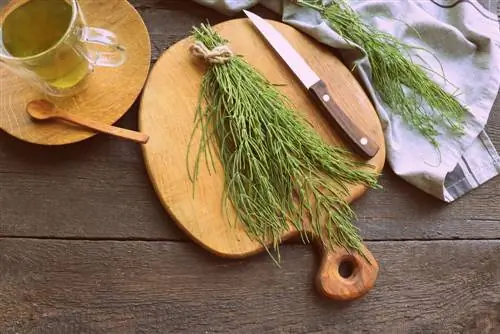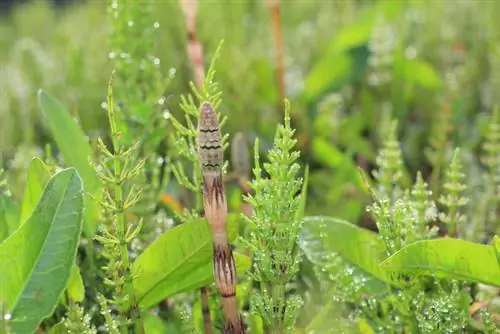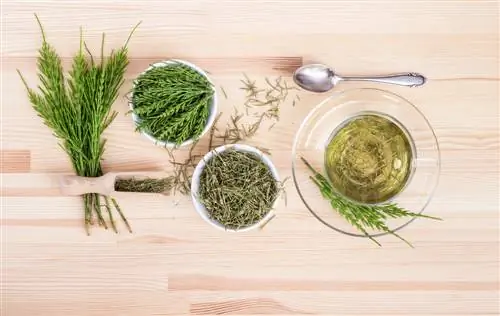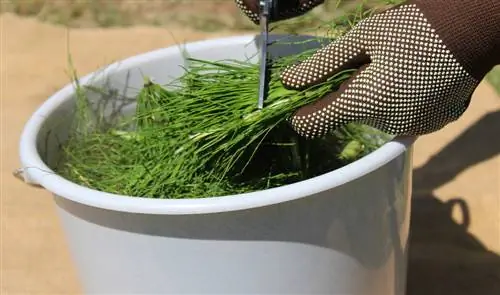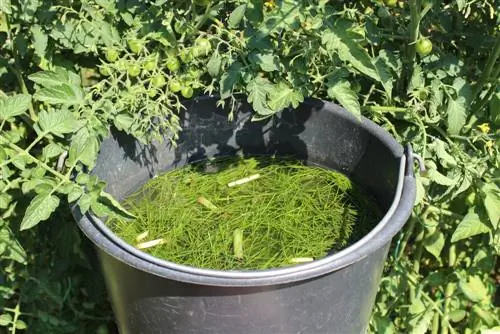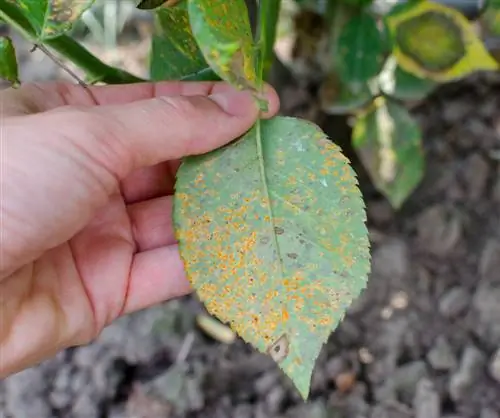- Author admin leonars@hobbygardeners.com.
- Public 2023-12-16 16:46.
- Last modified 2025-01-23 11:22.
Aphids are not just unpleasant to look at. The insects can cause so much damage to your plants that they become diseased and die. You can use field horsetail to combat annoying pests on your plants. For successful treatment, the correct processing of the medicinal plant is of crucial importance.
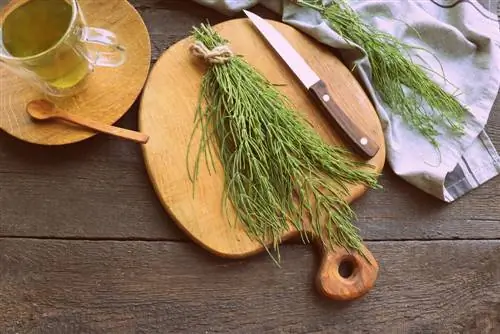
How does field horsetail help against aphids?
Field horsetail works against aphids because the silica and potassium it contains strengthen the cell walls and structure of the plants. A decoction of 1 kg of fresh or 150 g of dried field horsetail, an onion and a clove of garlic heated and filtered in 10 liters of water helps when spraying the plants.
How does field horsetail work against aphids?
Field horsetail contains manypositive active ingredients. Among other things, horsetail also has a high proportion of silica and potassium. These substances strengthen cell walls and cell structure, protecting them from invaders such as aphids.
How do I use field horsetail against aphids?
You have to store field horsetail in water for a long time orcook it at high temperatures to dissolve the silica. In general, this mineral is poorly soluble in water. That's why you should make a decoction with Ackerschach straw. The infected plant is sprayed with the cooled brew.
How do I make a decoction of field horsetail against aphids?
For a decoction of field horsetail against aphids,1 kg of fresh or 150 g of dried horsetail stalk are poured with an onion and a garlic clove together with 10 liters of boiling water. The mixture must then continue to simmer for at least another hour. After cooling, the broth is filtered. The Ackerschach partial stalk broth can then be mixed with water in a ratio of 1:5 and used, for example, for your roses. You can store the brew in the refrigerator for about a week.
Tip
Field horsetail manure as an alternative to the brew
Manure made from field horsetail can also be used against aphids. To do this, make a normal manure and leave it as sunny as possible for at least 3 weeks. When the manure is ready and no more bubbles form, filter it and mix 1 liter of manure to 10 liters of irrigation water. The plants absorb the silica from the irrigation water through their roots.

